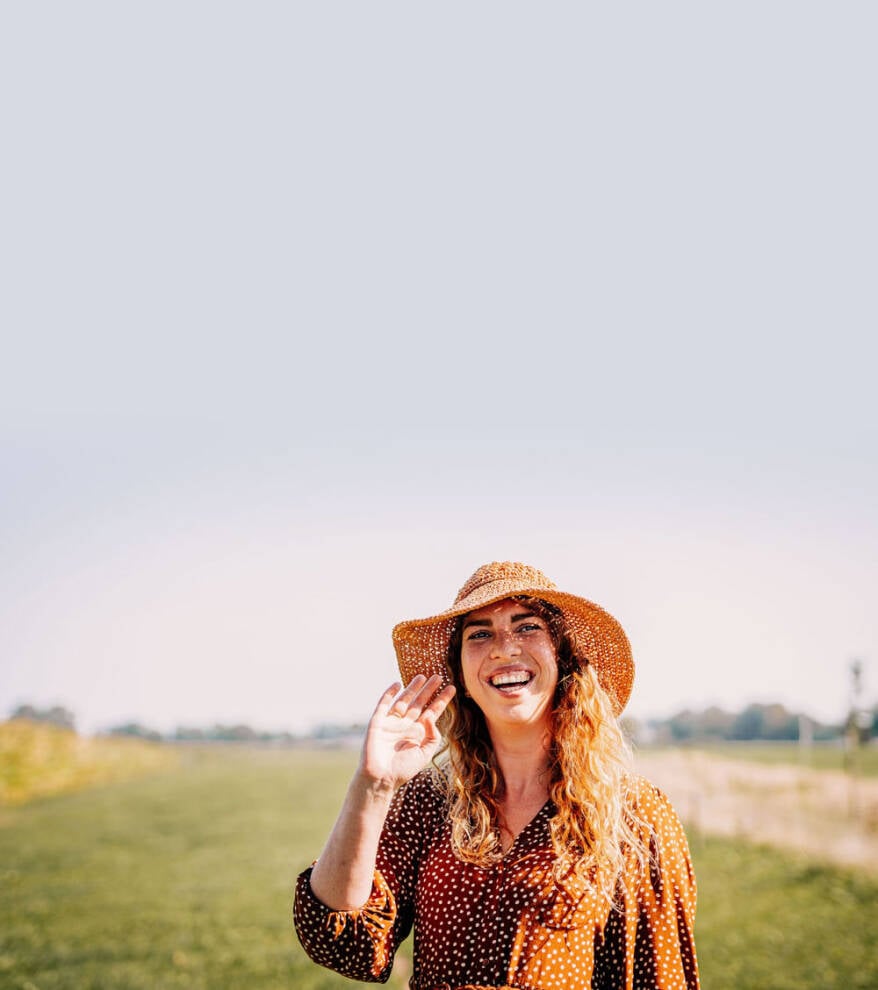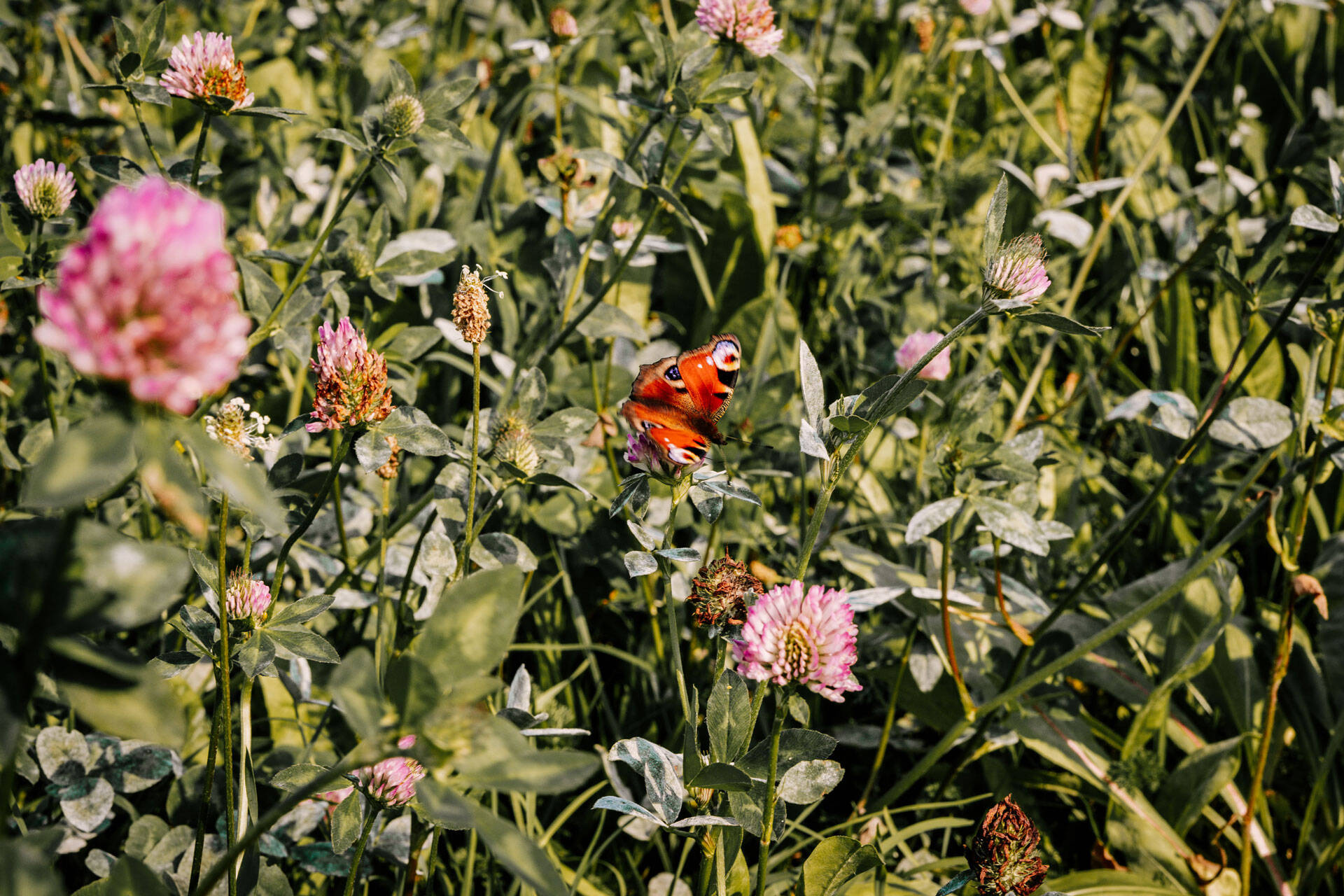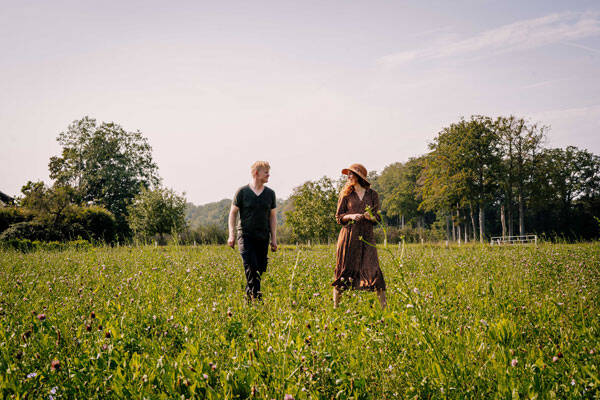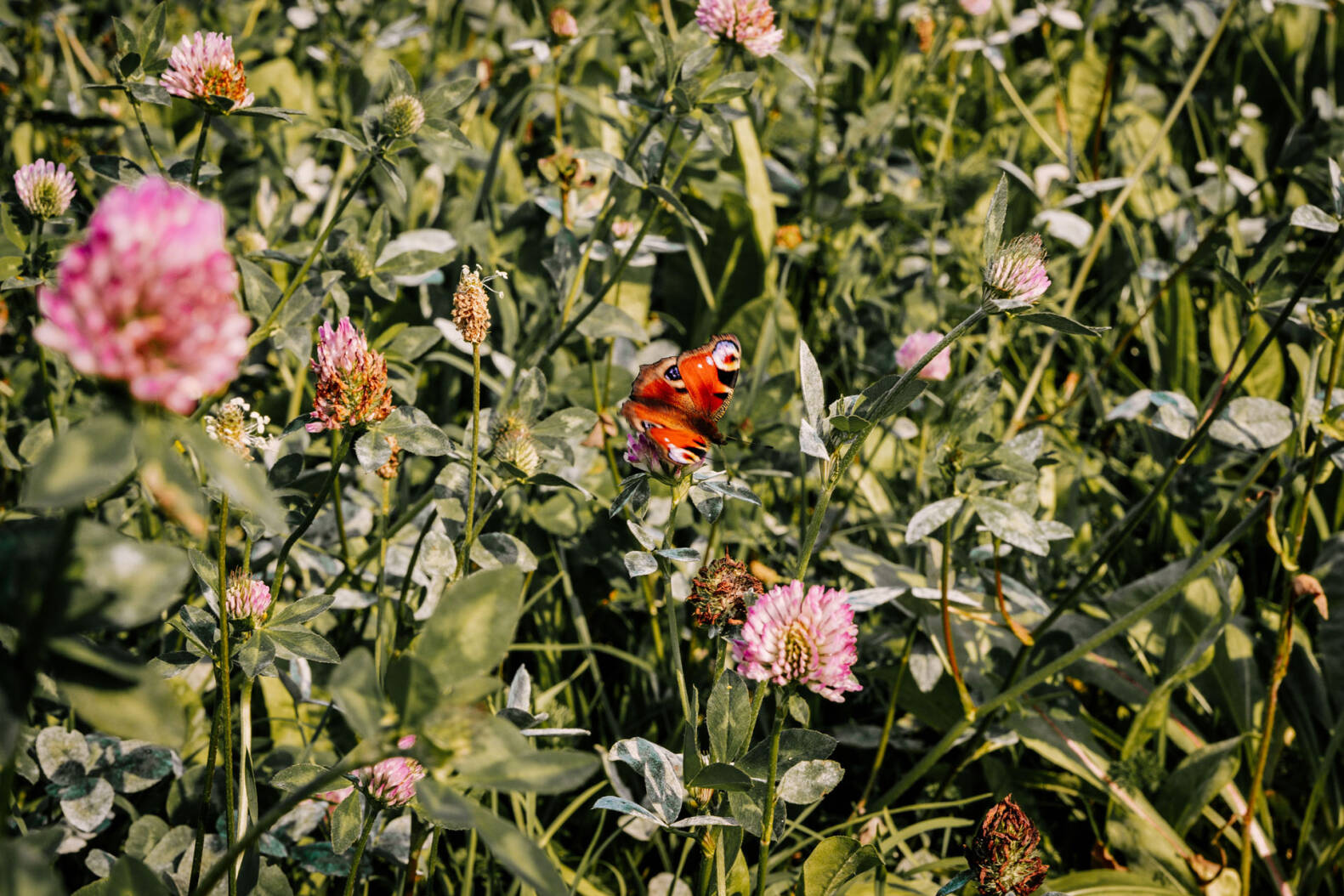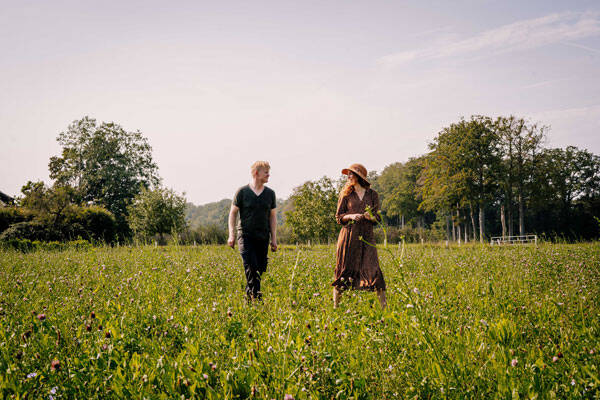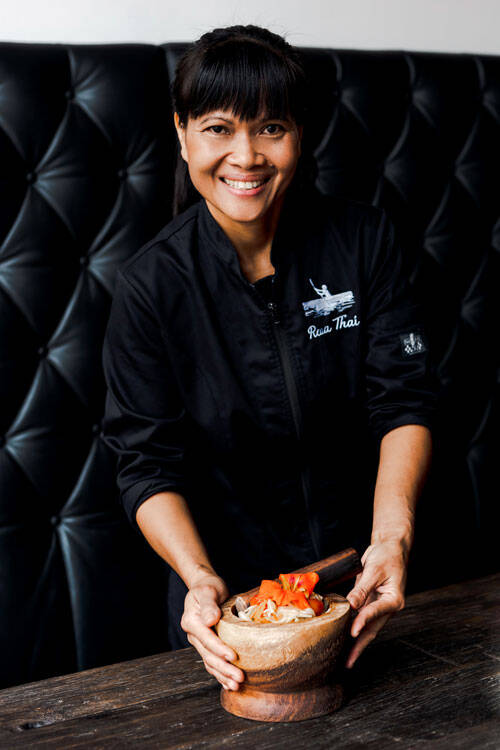"It is our goal to leave this environment and farm even more beautiful than the way we found it"
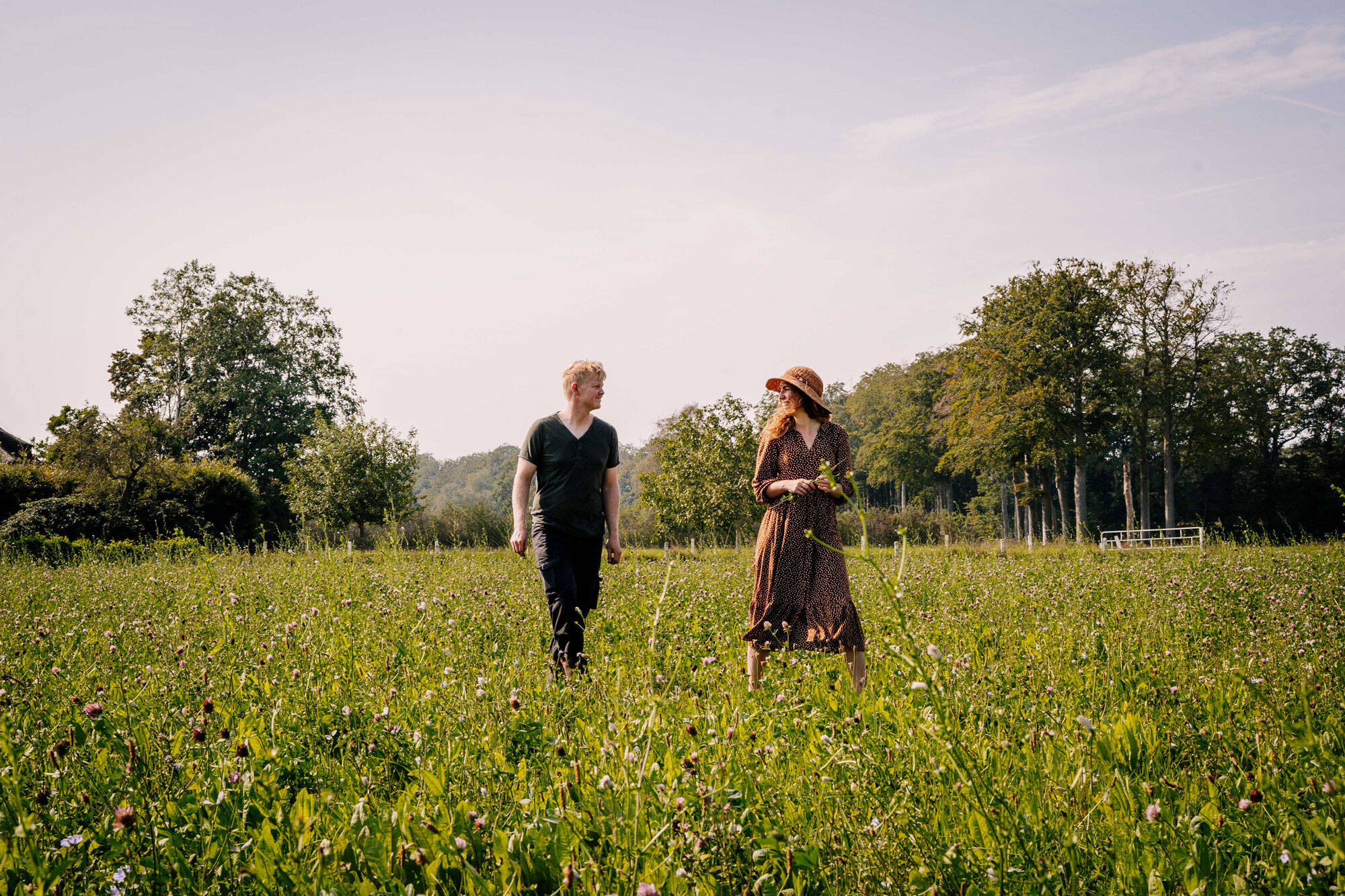
- Healthy, productive soil is the foundation of the farm. That is why the cows of The Melkbrouwerij are fed grass and herbs almost exclusively, unlike most animals in conventional agriculture that often get fed with corn or soy. According to Rick and Arjuna, grass and herbs are the most healthy for the cows and in addition, the herbs in the grass (such as red clover) ensure soil fertility and contribute to a natural landscape.
The Melkbrouwerij works according to an organic philosophy. This means that environmental impacts and animal welfare are taken into account. The Melkbrouwerij does not use chemical pesticides, and the animals have more room to display their natural behavior.
Arjuna and Rick are convinced that their horns exist for a reason and that it is more natural to leave them on.
Natural landscape
The Melkbrouwij is constantly evolving. In addition to cows, other animals such as pigs and chickens, also live on the farm. When the pigs are slaughtered, members can also receive meat packages from the refrigerator. Rick and Arjuna are also working on making the company even more nature-friendly. Wood areas with edible shrubs, herbs, nut and fruit trees have been planted out across the meadows. By planting diverse trees and plants, Rick and Arjuna want to create a useful, beautiful and natural landscape. Arjuna: "It is our goal to leave this environment and farm even more beautiful than the way we found it."
Membership subscription
The milk, butter, buttermilk and kefir that are produced at The Melkbrouwerij are sold in supermarkets in and around Deventer. In addition, the farm uses a membership structure. Arjuna: “People from the area can become a member through our website. Once registered, we schedule a meeting at the farm and I give them a tour. After that, they can always come by and get products from the refrigerator. On a form they write down what they’ve taken. At the end of the month I send an invoice with the amount of the products purchased every month. Our system is completely based on trust. The best thing about this arrangement is that I get to know our members personally. Sometimes I walk out early in the morning and someone is already standing by the fridge, just getting some butter and milk before the day starts.”
- The farm’s cows are of the old MRIJ breed. Red-and-white cows with a dual purpose, which means they’re suitable for delivering both milk and meat. In general, with conventional agriculture, cows are kept for either one or the other.
- The cows of The Melkbrouwerij keep their horns. Arjuna and Rick are convinced that their horns exist for a reason and that it is more natural to leave them on. In conventional agriculture, cows are often dehorned to avoid injuring each other.
What does the farm do differently?
Under the leadership of Arjuna and Rick, The Melkbrouwerij is now characterized by its unconventional management. "It was clear to us from the start that we would switch from conventional agriculture to organic farming."
What characterizes the Milk Brewery?
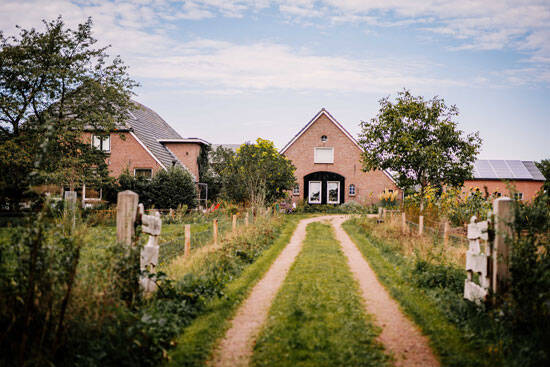
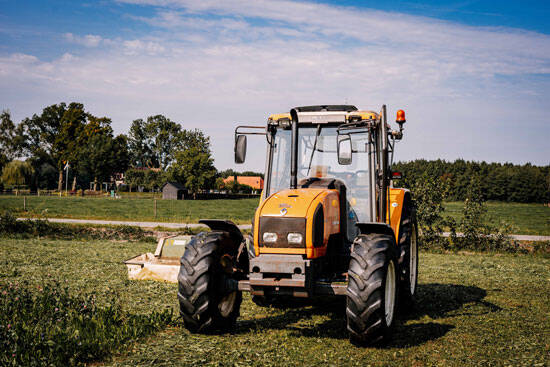
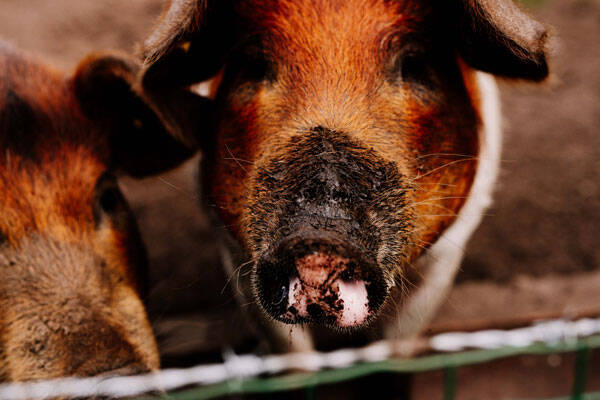
From conventional farming to biodynamic
To bring about change themselves, they decided to put their money where their mouth was and let Rick's parents know that they were interested in taking over the family business. Arjuna: “It was a huge surprise for my father-in-law. He was already gradually winding down the business - which was at that point still a conventional farm. For two years we researched how we wanted to implement our way of farming. We visited other farms and Rick took a part-time course in biodynamic agriculture after studying landscape architecture.
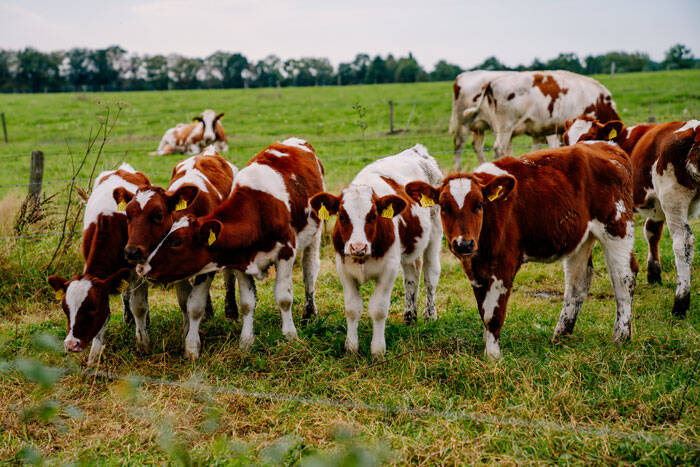
For six generations the farm west of the Dutch village of Lettele has been in the hands of the Huis in 't Veld family. The current owners Rick and Arjuna Huis in 't Veld, never planned to take over the company from Rick's parents. Living in Utrecht, they had an urban lifestyle without plans to start their careers as farmers. However, they had a critical view on the food system. Questions such as: "where does our food come from?" And "which (unnatural) ingredients are actually in our food?" Were frequently asked. Arjuna: "After a while we said: we talk about what needs to be improved, but we should also do something!"
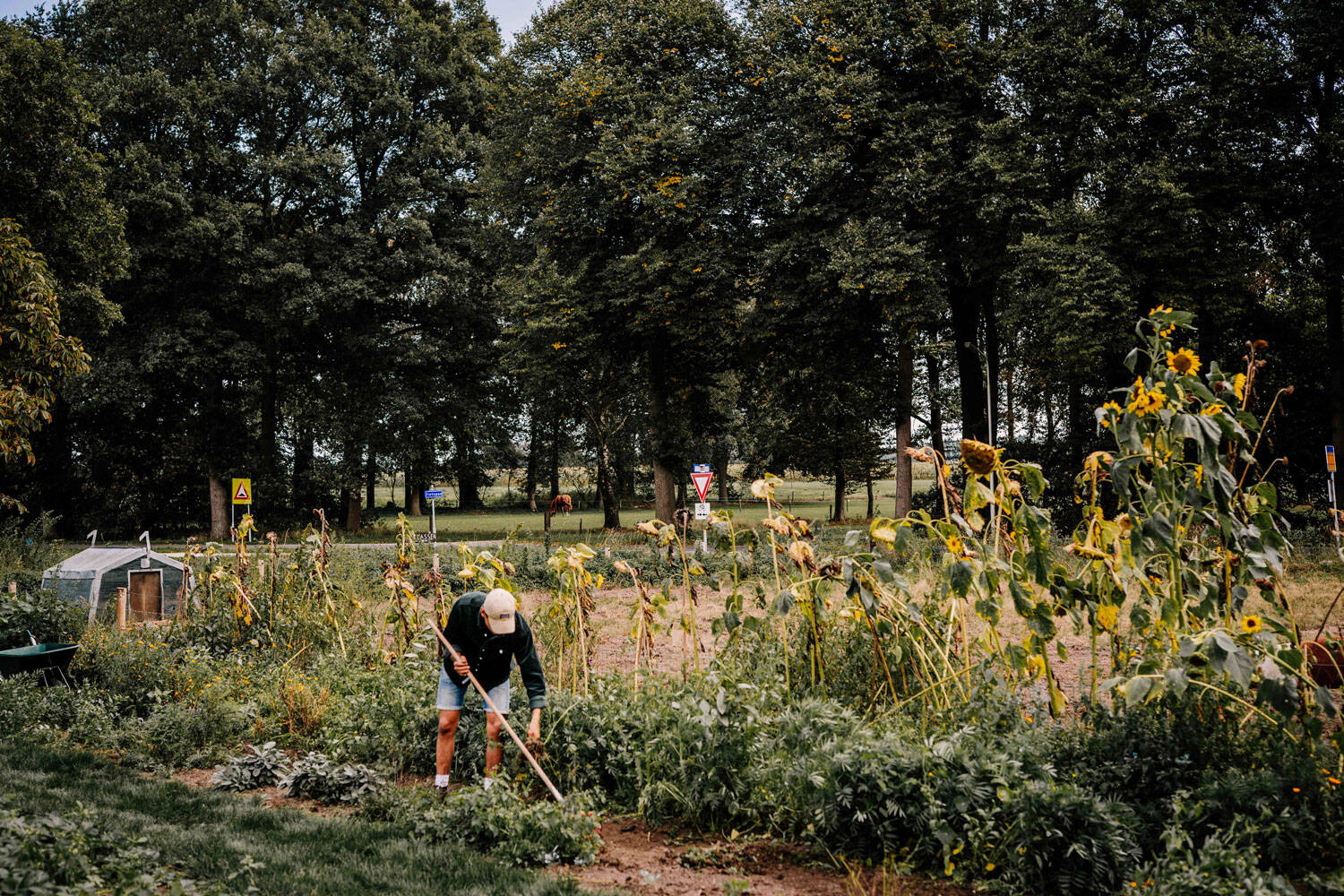
Lisa Appels Nina Slagmolen & Roos Signer Xiao Er Kong
In the East of The Netherlands one can find The Melkbrouwerij (the milk brewery); an organic farm where animals, landscape and nature, always come first. Rick and Arjuna Huis in 't Veld are the power couple behind this special farm.
Going back in time using modern knowledge
Young farmers changing their conventional family business
INTERVIEW
5 min
young farmers changing their conventional family business
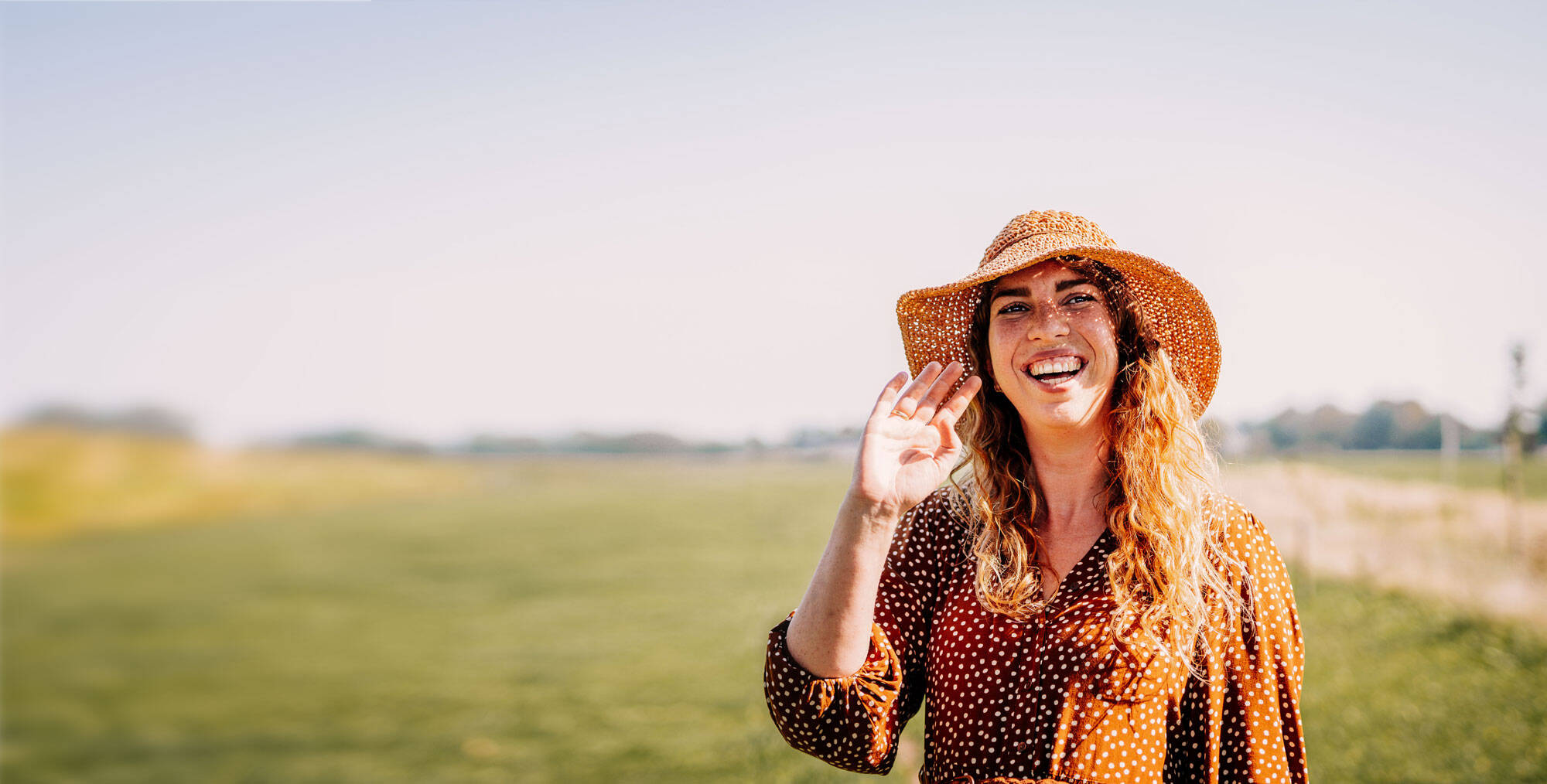
"It is our goal to leave this environment and farm even more beautiful than the way we found it"
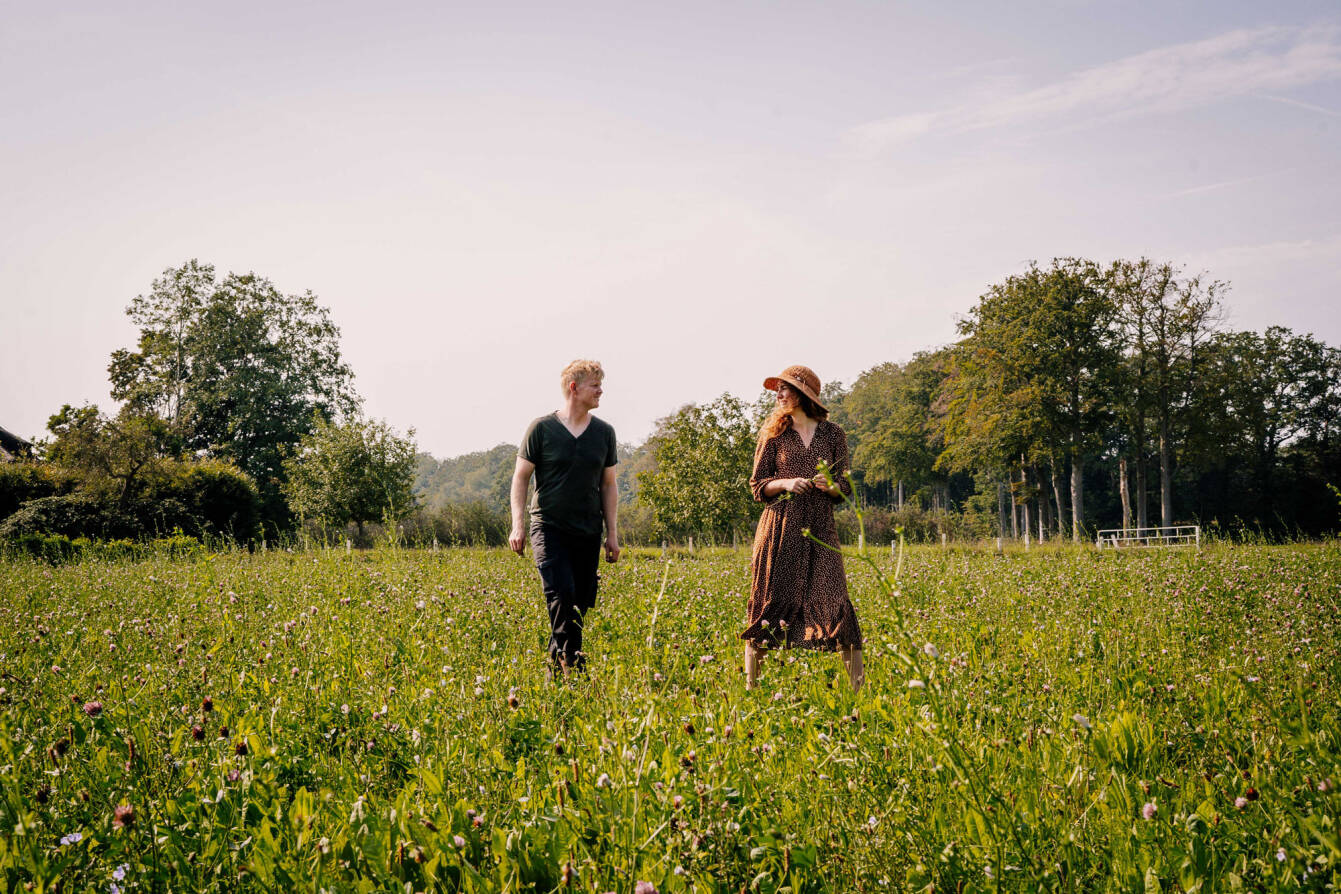
Natural landscape
The Melkbrouwij is constantly evolving. In addition to cows, other animals such as pigs and chickens, also live on the farm. When the pigs are slaughtered, members can also receive meat packages from the refrigerator. Rick and Arjuna are also working on making the company even more nature-friendly. Wood areas with edible shrubs, herbs, nut and fruit trees have been planted out across the meadows. By planting diverse trees and plants, Rick and Arjuna want to create a useful, beautiful and natural landscape. Arjuna: "It is our goal to leave this environment and farm even more beautiful than the way we found it."
Membership subscription
The milk, butter, buttermilk and kefir that are produced at The Melkbrouwerij are sold in supermarkets in and around Deventer. In addition, the farm uses a membership structure. Arjuna: “People from the area can become a member through our website. Once registered, we schedule a meeting at the farm and I give them a tour. After that, they can always come by and get products from the refrigerator. On a form they write down what they’ve taken. At the end of the month I send an invoice with the amount of the products purchased every month. Our system is completely based on trust. The best thing about this arrangement is that I get to know our members personally. Sometimes I walk out early in the morning and someone is already standing by the fridge, just getting some butter and milk before the day starts.”
Arjuna and Rick are convinced that their horns exist for a reason and that it is more natural to leave them on.
- Healthy, productive soil is the foundation of the farm. That is why the cows of The Melkbrouwerij are fed grass and herbs almost exclusively, unlike most animals in conventional agriculture that often get fed with corn or soy. According to Rick and Arjuna, grass and herbs are the most healthy for the cows and in addition, the herbs in the grass (such as red clover) ensure soil fertility and contribute to a natural landscape.
The Melkbrouwerij works according to an organic philosophy. This means that environmental impacts and animal welfare are taken into account. The Melkbrouwerij does not use chemical pesticides, and the animals have more room to display their natural behavior.
- The farm’s cows are of the old MRIJ breed. Red-and-white cows with a dual purpose, which means they’re suitable for delivering both milk and meat. In general, with conventional agriculture, cows are kept for either one or the other.
- The cows of The Melkbrouwerij keep their horns. Arjuna and Rick are convinced that their horns exist for a reason and that it is more natural to leave them on. In conventional agriculture, cows are often dehorned to avoid injuring each other.
What does the farm do differently?
Under the leadership of Arjuna and Rick, The Melkbrouwerij is now characterized by its unconventional management. "It was clear to us from the start that we would switch from conventional agriculture to organic farming."
What characterizes the Milk Brewery?
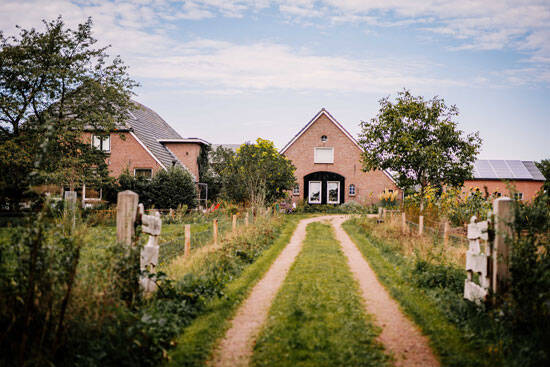
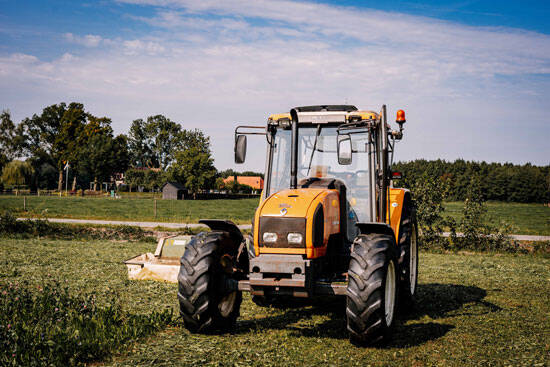
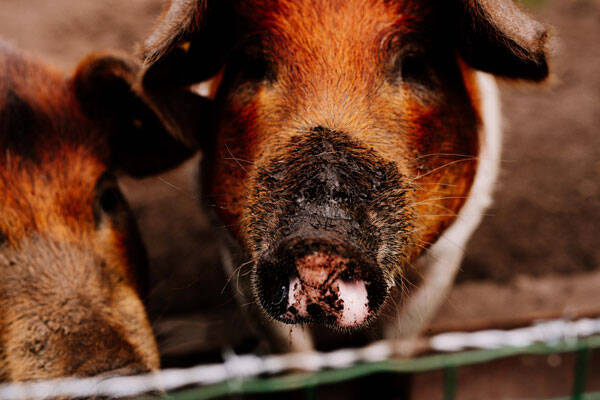
From conventional farming to biodynamic
To bring about change themselves, they decided to put their money where their mouth was and let Rick's parents know that they were interested in taking over the family business. Arjuna: “It was a huge surprise for my father-in-law. He was already gradually winding down the business - which was at that point still a conventional farm. For two years we researched how we wanted to implement our way of farming. We visited other farms and Rick took a part-time course in biodynamic agriculture after studying landscape architecture.
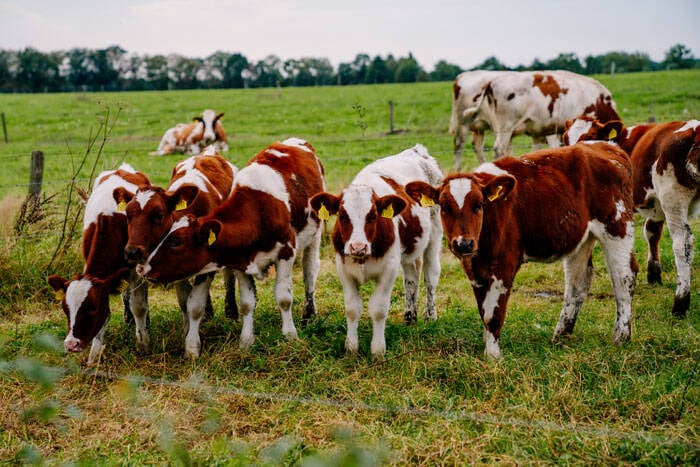
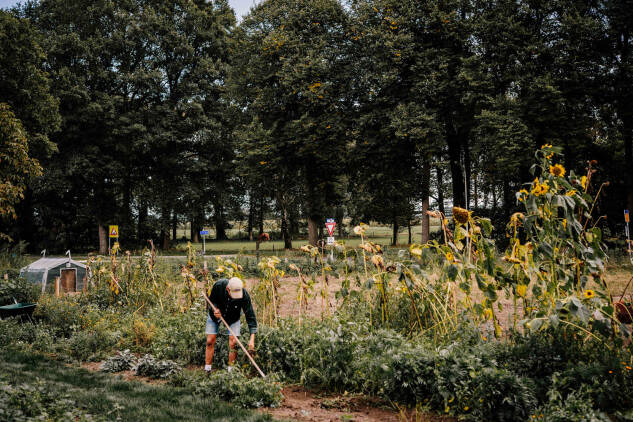
For six generations the farm west of the Dutch village of Lettele has been in the hands of the Huis in 't Veld family. The current owners Rick and Arjuna Huis in 't Veld, never planned to take over the company from Rick's parents. Living in Utrecht, they had an urban lifestyle without plans to start their careers as farmers. However, they had a critical view on the food system. Questions such as: "where does our food come from?" And "which (unnatural) ingredients are actually in our food?" Were frequently asked. Arjuna: "After a while we said: we talk about what needs to be improved, but we should also do something!"
Lisa Appels Nina Slagmolen & Roos Signer
Xiao Er Kong
In the East of The Netherlands one can find The Melkbrouwerij (the milk brewery); an organic farm where animals, landscape and nature, always come first. Rick and Arjuna Huis in 't Veld are the power couple behind this special farm.
Going back in time using modern knowledge
Young farmers changing their conventional family business
5 min
